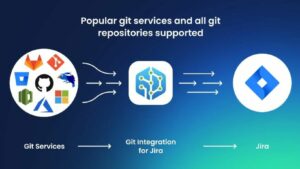Jira Plugin Development
 Are you looking to enhance your Jira experience? Dive into the world of Jira plugin development. Building custom plugins can revolutionize the way you manage projects, streamline workflows, and boost productivity. With the power to tailor Jira to your specific needs, the possibilities are endless.
Are you looking to enhance your Jira experience? Dive into the world of Jira plugin development. Building custom plugins can revolutionize the way you manage projects, streamline workflows, and boost productivity. With the power to tailor Jira to your specific needs, the possibilities are endless.
In this article, explore the ins and outs of Jira plugin development. Discover how you can extend Jira’s functionality, integrate with external tools, and automate repetitive tasks. Whether you’re a seasoned developer or new to the world of plugins, this guide will equip you with the knowledge and tools to take your Jira instance to the next level.
When initiating Jira plugin development, clarity in defining the purpose and functionality of the plugin is crucial. Begin by outlining the specific features the plugin will offer to enhance Jira’s capabilities. A well-thought-out plan and design ensure a structured approach to the development process, aiding in the smooth implementation of the plugin.
Key Tools and Technologies for Jira Plugin Development
In Jira plugin development, having the right tools and technologies is crucial for success. Here are some key elements to consider:
Setting Up Your Development Environment
When setting up the development environment for Jira plugin development, developers should ensure they have the following tools:
- Java Development Kit (JDK): The JDK is essential for developing Java-based plugins for Jira.
- Integrated Development Environment (IDE): IDEs like IntelliJ IDEA or Eclipse provide a conducive environment for coding Jira plugins efficiently.
- Atlassian SDK: Atlassian SDK simplifies plugin development by providing tools for building, running, and testing Jira plugins.
Essential Technologies and Frameworks
To enhance Jira plugin development, developers should leverage the following technologies and frameworks:
- Atlassian Plugin SDK: This SDK offers resources and libraries that streamline the plugin development process.
- Java: Being the primary language for Jira plugin development, Java proficiency is crucial for creating robust plugins.
- JavaScript and HTML: Knowledge of JavaScript and HTML is beneficial for developing dynamic and interactive Jira plugins.
- REST API: Understanding and utilizing Jira’s REST API enables seamless integration with external systems and enhances plugin functionality.
By incorporating these tools and technologies into Jira plugin development, developers can create custom plugins that extend Jira’s capabilities, automate tasks, and integrate with external tools effectively.
Best Practices in Jira Plugin Development
When it comes to Jira plugin development, adhering to coding standards and guidelines is paramount. Writing clean, well-structured code not only ensures the plugin’s reliability but also facilitates future enhancements and maintenance. Following established coding conventions improves code readability and fosters collaboration among developers.
Coding Standards and Guidelines
- Consistent Naming Conventions: Use meaningful names for variables, functions, and classes to convey their purpose clearly. Follow a consistent naming style across the project for
 uniformity.
uniformity. - Modularization: Divide the plugin into manageable modules with well-defined boundaries. This promotes reusability, simplifies debugging, and enhances scalability.
- Error Handling: Implement robust error-handling mechanisms to gracefully manage exceptions and failures. Proper error handling enhances the plugin’s stability and prevents unexpected crashes.
- Code Documentation: Documenting the code with inline comments and clear descriptions improves code comprehension. Maintain up-to-date documentation to aid future developers in understanding and modifying the plugin.
- Optimize Performance: Pay attention to performance optimization techniques such as caching frequently accessed data and minimizing database queries. Efficient code execution enhances the overall responsiveness of the plugin.
- Security Considerations: Prioritize security by implementing best practices such as input validation, data encryption, and protection against common vulnerabilities. Safeguarding sensitive data is crucial for maintaining trust and integrity.
- Continuous Testing: Conduct thorough testing at each development stage to identify and rectify bugs early. Utilize automated testing frameworks to streamline the testing process and ensure the plugin’s reliability.
- Version Control: Embrace version control systems like Git to track changes, collaborate with team members, and revert to previous versions if needed. Version control enhances code management and facilitates seamless collaboration.
Incorporating these best practices and tips into Jira plugin development not only ensures the creation of high-quality, reliable plugins but also streamlines the development process for optimal outcomes.

